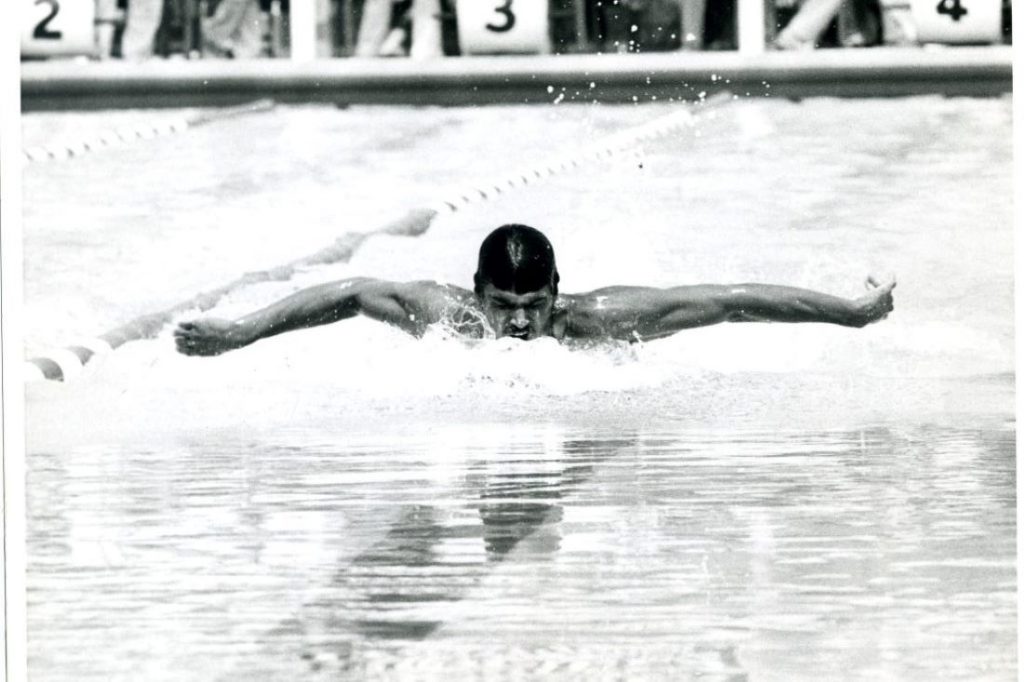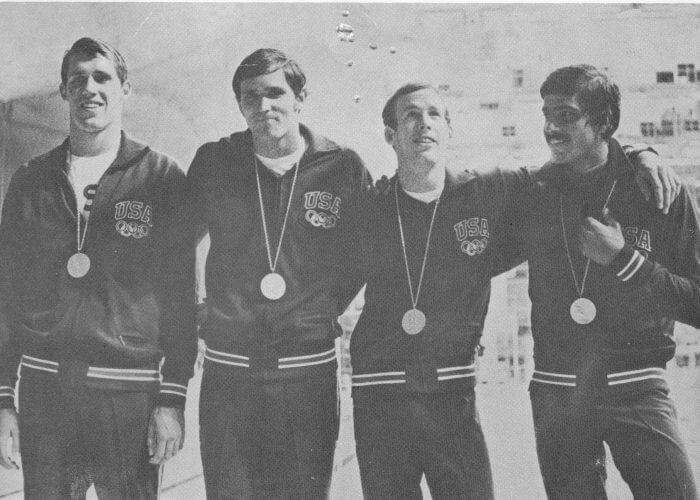Munich Games 50th: When Mark Spitz Marched Into History With Seven-Gold Show

Munich Games 50th: When Mark Spitz Marched Into History With Seven-Gold Show
This year marks the 50th anniversary of the 1972 Olympic Games in Munich, which featured Mark Spitz and one of the most iconic performances the sport has seen.
Mark Spitz did not arrive in Munich in 1972 as a world-beating swimmer. Instead, he came to the 1972 Olympics an off week away from being remembered as an Olympic flop.
Spitz’s expectations in Munich were tempered by what was widely regarded as a disastrous showing in Mexico City in 1968. Spitz entered that Olympics with 10 world-record swims and a brash prediction that he could win six medals in the first Olympics hosted by the global south.
The combination of altitude and an indominable American field laid waste to any hubris he may have entered with. Spitz left Mexico City with four medals. But just two were gold, and both of those were in well-nigh unbeatable American relays.
Individually, he managed a bronze and a silver. The former came in the 100 freestyle, but it was the latter that began the unravelling of his Olympics: In the 100 butterfly, an event in which Spitz held the world record, he was beaten by fellow American Doug Russell, who he’d dominated in domestic competition.
So rattled by his turn of fortunes was Spitz that he finished last in the final of the 200 butterfly, an event in which he owned the world record.

Photo Courtesy: ISHOF Archives
“I had a difficult time from the 1968 Olympic Games in Mexico City where I was expected to win a lot of gold medals,” Spitz said. “And if I just look at my performance of winning two gold, a silver and a bronze, I mean that is pretty remarkable. But the problem was, is that I didn’t win a gold medal in two events I held a world record in. And that was just the reason that I basically had this fire in my system to be able to want to actually go for another four years. I found it kind of difficult to work out and train. But I had a focus and the focus was to do the best I could.”
Not yet out of high school, Spitz was forced to recalibrate his approach for the next Olympics.
Few have ever done so quite as well.
What Spitz accomplished in Munich stands as a pillar of competitive swimming history. He went 7-for-7 in gold medals at the 1972 Olympics: The 100 free, the 200 free, the 100 fly, 200 fly and all three relays. All seven resulted in world records.
Only the 100 free was remotely close. Spitz already owned the world record in the event and he lowered it to 51.22 seconds. But he faced a battle from countryman Jerry Heidenreich, who won silver in 51.65. The 200 free was decided by nearly a second. The 100 fly he romped to in 54.27, a second up on Canadian Bruce Robertson. The distance to his fellow Indiana Hoosier Gary Hall Sr. in the 200 fly was more than two seconds. That was his first race in Munich, and a definitive statement that 1972 would be different from four years earlier.
In the relays, no one stood a chance against the American juggernaut, the Soviet Union coming closest in a 3.3-second margin over 400 meters of freestyle.
“Each day that I swam and I won a gold medal, it was like one brick shy of a load getting off of the cart,” Spitz said. “And so, I felt that I was actually having a better go of it. But I was exhausted by the time it came to my last individual event, the 100-meter freestyle. And I have to say that the last stroke that I took at the Olympic Games, I don’t think I could have taken another stroke. I was 100 percent up until the last stroke, and I literally had one drop of gas in my tank at the end of that. So thank goodness it ended.”
Spitz’s Olympic moment was dampened by the events that clouded the entire Munich Games. The day after swimming competition ended, a Palestinian militant group kidnapped a group of Israeli athletes and coaches, leading to the death of 11 Olympic participants and one West German police officer. As a prominent Jewish athlete, the act of terrorism hit Spitz harder than most.
Despite that pain, the Munich Games remain a poignant memory for Spitz. And his performance, even after being bettered by Michael Phelps’ eight gold medals in 2008, remains a watershed moment for the sport.



